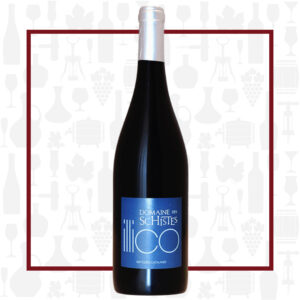Cellar Profile
The Sire family have been grape growers in Roussillon since 1906, as long standing members of the local cooperative. But it wasn’t until 1989 that they decided to vinify and bottle their prized fruit under the name,Domaine des Schistes. As the name suggests, their 50 hectares of vines are planted in predominantly schistous soils around the villages of Estagel and Tautavel. This unique soil-type is found in pockets throughout the region and provides the ideally poor, rocky foundation for quality viticulture in this corner of France. The winery is now under the stewardship of young, energetic Mickaël Sire, a part of France’s next generation of vignerons obsessed with quality and sustainability. Like many young winemakers, Mickaël travelled and worked extensively abroad before returning home to Roussillon to take over the family estate. He farms organically and adheres to the principles of low- intervention winemaking: native yeast ferments; minimal oak; no fining or filtering. These wines are loaded with Roussillon character.
Region
Roussillon is all too often lumped together with its eastern neighbour, Languedoc. And while the two regions do share similarities—namely warm temperatures and common grapes—there are significant and important differentiators as well. From a cultural standpoint, Roussillon is more Catalan than French, located just over the Pyrenees mountains where the Mediterranean coast runs north before veering east. The climate here is harsh and severe, with extreme heat, minimal rain and a constant, fierce wind, known locally as the Tramontane. The soils are incredibly poor, with barely a trace of earth on top of a hard shale, schist and limestone base. All of these factors combine to naturally create incredibly low yields and, as a result, intense, characterful wines. Low yields and small estates also mean higher production costs. On average, the wines of Roussillon are more expensive than those from Languedoc. They are also a little more demanding for the drinker in terms of profile and style. They are most definitely wines that show best with food; and they usually reward patience, be it via decanter or time in the cellar. But they are some of the most expressive, complex and terroir-driven wines you will find
Vineyard
Hand-picked from bush vines planted in poor, schist-based soils in the foothills of the Pyrenees, this wine is from the village of Estagel. Vineyard elevations and aspects vary. The old vines are selected for their ability to craft easy-drinking wines that are drinkable young. The vineyards are farmed organically and sustainably, with special care undertaken to preserve the natural surrounding fauna and flora.
Varieties
Merlots are easy-drinking reds that go well with food but can be enjoyed on their own. It is believed that the first time the grape was used in making wine was in the late 1700s, when a French winemaker in the Bordeaux region formally labeled the grape as an ingredient in his Bordeaux blend. Marselan is a crossing between Cabernet Sauvignon and Grenache, having a riper style than Cab but more structure than Grenache typically has. It isn’t widely grown, but is popular in Southwest France and has seen new plantings in China’s burgeoning wine industry. Carignan had fallen out of favour with Mediterranean winemakers. It is a fairly difficult grape to grow, being particularly sensitive to various forms of mildew. It ripens late and is extremely vigorous, often making rather ordinary wines when yields are not checked. However, when it is mastered, it can give wines of incredible structure and quality.
Winemaking
Hand-harvested fruit from selected vines are gently single-pressed, to avoid astringency. The varietals are fermented separately, using daily punchdowns to extract colour, before being blended together and aged in a combination of concrete vats and large, neutral French oak tuns. After a light fining, the wines are bottled unfiltered.
Tasting Notes
Ripe nose of blackberry, cassis, mocha and violets. The palate is medium-bodied, with some silky tannins. Flavours of blackberry, red plum, anise and cocoa are framed by those smooth tannins and some perceptible acidity to make this an excellent choice to sip casually with good conversation, or enjoy with roast pork.

 info@buyersandcellars.ca
www.buyersandcellars.ca
info@buyersandcellars.ca
www.buyersandcellars.ca